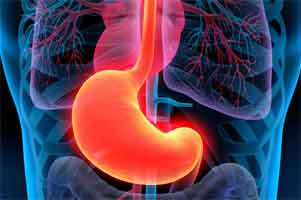- Home
- Editorial
- News
- Practice Guidelines
- Anesthesiology Guidelines
- Cancer Guidelines
- Cardiac Sciences Guidelines
- Critical Care Guidelines
- Dentistry Guidelines
- Dermatology Guidelines
- Diabetes and Endo Guidelines
- Diagnostics Guidelines
- ENT Guidelines
- Featured Practice Guidelines
- Gastroenterology Guidelines
- Geriatrics Guidelines
- Medicine Guidelines
- Nephrology Guidelines
- Neurosciences Guidelines
- Obs and Gynae Guidelines
- Ophthalmology Guidelines
- Orthopaedics Guidelines
- Paediatrics Guidelines
- Psychiatry Guidelines
- Pulmonology Guidelines
- Radiology Guidelines
- Surgery Guidelines
- Urology Guidelines
Haloperidol as adjunctive therapy superior to placebo for acute gastroparesis symptoms

Haloperidol is an effective first-line agent in combination with standard analgesic and antiemetic agents for the treatment of gastroparesis in the emergency department. That is the primary finding of a study to be published in the November 2017 issue of Academic Emergency Medicine (AEM), a journal of the Society for Academic Emergency Medicine (SAEM).
The lead author of the study is Carlos J. Roldan, MD, assistant professor in the Department of Pain Medicine at The University of Texas MD Anderson Cancer Center, Houston and clinical associate professor of emergency medicine in the Department of Emergency Medicine, McGovern Medical School, The University of Texas Health Science Center at Houston.
The study, by Roldan and colleagues, is the first randomized, double-blind, placebo-controlled trial to assess the efficacy of haloperidol as an adjunctive therapy for gastroparesis symptoms in the emergency department. The study found that compared with gastroparesis patients randomized to placebo, those who received Haloperidol had a statistically significant reduction of nausea and pain, with no side effects, suggesting that the addition of haloperidol to conventional therapy was better than conventional therapy alone.
The study proposes that future research, with larger sample sizes, is needed to evaluate the external validity of the findings.
"A non-opiate treatment that actually works for gastroparesis exacerbations in the emergency department? Practice changing!" said John S. Garrett, MD, medical director of emergency management for Baylor Scott & White Health, Dallas, TX

Disclaimer: This site is primarily intended for healthcare professionals. Any content/information on this website does not replace the advice of medical and/or health professionals and should not be construed as medical/diagnostic advice/endorsement or prescription. Use of this site is subject to our terms of use, privacy policy, advertisement policy. © 2020 Minerva Medical Treatment Pvt Ltd